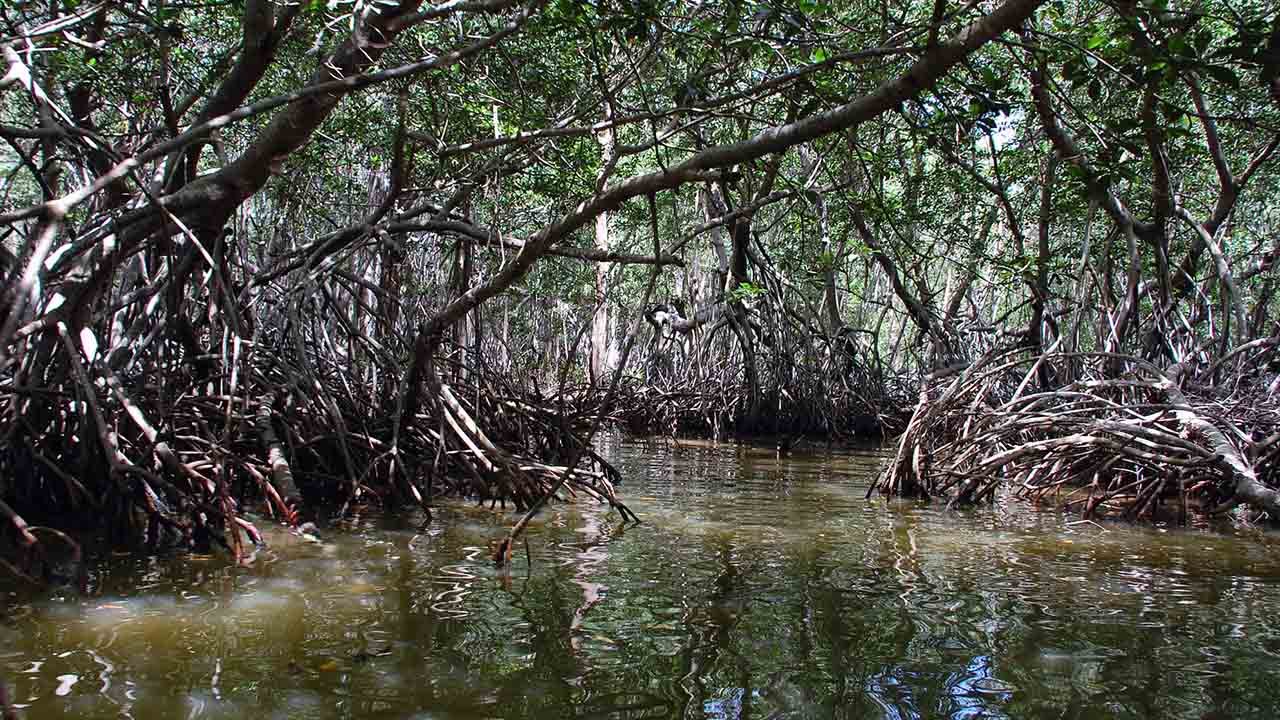The world is waking up to the importance of mangroves, a senior UN official said, underscoring the need for everyone to support the restoration and protection of these crucial habitats. Ms. Audrey Azoulay, Director General of the UN Educational, Scientific and Cultural Organization (UNESCO), made the appeal in her message for the conservation of the mangrove ecosystem on the occasion of International Day for Conservation of Mangroves. Mangroves are found in tropical and sub-tropical regions, on the boundary between land and sea. Globally, they cover a surface of just 14.8 million hectares, or roughly equivalent to the size of Greece.
Coastal development threat
“They protect biodiversity by sheltering and nurturing marine life. They function like filtration systems, absorbing nutrients and pollutants. They fight coastal erosion, acting as breakwaters to dissipate storm surges and wave energy. Above all, they play an essential role as carbon sinks, sequestering atmospheric and oceanic carbon for long periods of time,” said Ms. Azoulay.
Yet despite these benefits, UNESCO estimated that some countries lost more than 40 percent of their mangroves between 1980 and 2005, often due to coastal development. Although human health has always depended on the health of the planet, Ms. Azoulay said the importance of mangrove systems is now increasingly clear. “The world is now waking up to the importance of mangroves – and other blue carbon ecosystems, including salt marshes, seagrass beds, and coastal wetlands,” she said.
Local partnerships UNESCO strives to conserve mangroves through its work on global geoparks and world heritage sites, the latter of which alone spans more than 10 percent of all marine protected areas globally, or 200 million hectares. The agency’s initiative on biosphere reserves, which reconciles biodiversity conservation with sustainable use, also provides “a unique blueprint” for preservation, Ms. Azoulay added.
“In these areas, the UNESCO is committed to implementing science-based solutions in coordination with local and indigenous communities, to support humanity’s ability to cope with socio-ecological change,” she said, pointing to examples in Thailand, Senegal, and the United Arab Emirates.
More than 700 sites in 129 countries are part of the UNESCO world network of biosphere reserves, which turns 50 this year, as the UN launches a decade of ecosystem restoration. “Through these initiatives and others, we are working to protect mangroves and to better support scientific research into these environments,” said Ms. Azoulay. She urged people everywhere to contribute to conservation efforts “so that, together, we can put a stop to mangrove habitat destruction, and restore what we have already lost.”





























